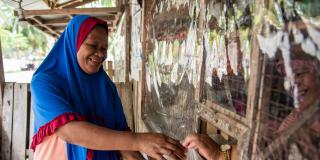
In the Global South, informal work constitutes about a third of income-generating activities, supporting about two billion workers worldwide.
Despite its significant contribution to the global economy, the informal sector is often stigmatized as the 'grey' or 'shadow' economy, unfairly labelled as illegal, and consequently undermining its potential role in reducing poverty and inequality through social protection.
What is informal work?
The informal economy refers to economic activities and transactions that occur outside the formal regulatory framework and are not monitored or taxed by the government.
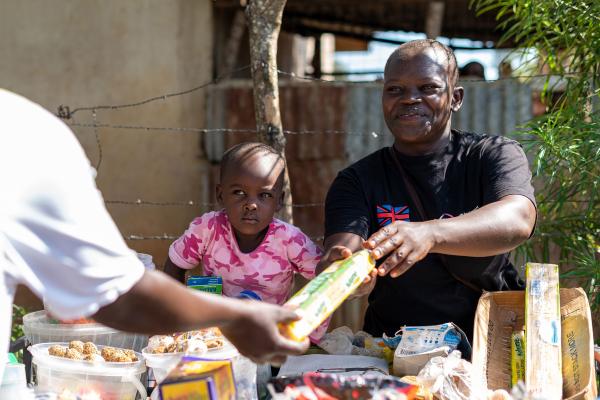
This includes informal employment, unregistered businesses, and informal sector workers who may lack access to social protections and formal financial services.
Understanding and addressing the informal economy is important for promoting inclusive economic growth, reducing financial inequality, and improving livelihoods, particularly within marginalised communities.
The issue affecting women in the informal workforce
Women are disproportionately represented in the informal workforce, with jobs ranging from domestic workers to street vendors to seasonal farmers.
A UN Women report in 2019 revealed that approximately 80% of women in South Asia, 74% in Africa, and 54% in Latin America and the Caribbean are part of this informal sector.1 However, women in this sector lack access to crucial social protection benefits such as pensions and sick leave, face lower wages, and are at a higher risk of sexual harassment.
As we mark International Women's Day, it is crucial to acknowledge the invaluable contributions of women in the informal workforce to our societies and economies. At VSO, we stand in solidarity with these women and advocate for inclusive social protection policies that prioritise their rights, dignity, and wellbeing.
The global gender gap score across 146 countries in 2023 stands at a staggering 68.4%, according to the World Economic Forum, suggesting it will take 131 years to achieve full gender equality.2
Despite a substantial number of women being part of the informal sector, their actual numbers are often underestimated by surveys.
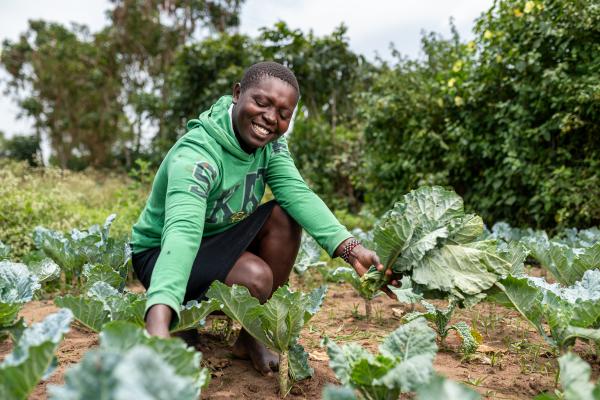
Prevailing social hierarchies and barriers often relegate women, particularly those from marginalised communities to unpaid or underpaid informal work without adequate social protection.
This situation is worsened by the lack of contracts, with more than half of the women involved considered 'ineligible' for social protection. This limits their ability to acquire professional skills necessary for formal employment and perpetuates economic dependence.
Despite their crucial contributions, women in the informal workforce are frequently excluded from formal labour protections and social safety nets, lacking access to essential services such as healthcare, childcare, and maternity leave.
This vulnerability perpetuates poverty, exploitation, and social exclusion. Governments must ensure that women not only have access to employment but are also protected in the workplace.
How VSO are investing in women
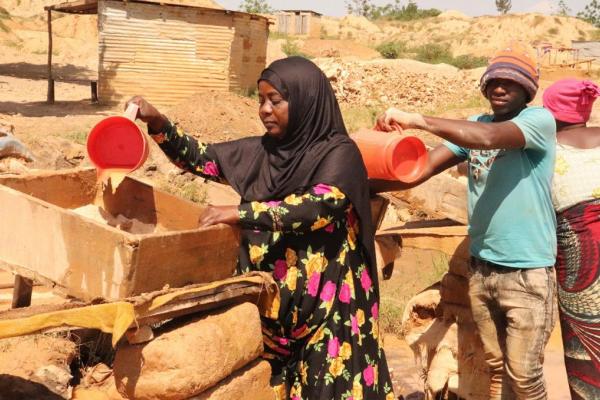
Investing in women in the informal workforce is not just about economic justice but also a strategic imperative for sustainable development. Empowering women in this sector can lead to improvements in health, education, and economic resilience across entire communities.
Research by the International Labour Organization (ILO) indicates that extending social protection coverage to women in the informal workforce significantly reduces poverty and inequality, benefiting not only women themselves, but also their families and communities.3
VSO has been instrumental in creating positive impacts on women in the informal economy through innovative projects such as CLARITY and Waste to Work. In Tanzania's Lake Zone districts, the CLARITY project tackles the challenges that hinder women, youth, and people with disabilities from equally benefiting from the extractive sector.
Meanwhile, in Kenya, VSO’s Waste to Work project focuses on strengthening green youth-led start-ups to create decent jobs through waste recovery and value addition.
By empowering young entrepreneurs in the waste management sector, Waste to Work promotes economic inclusion and sustainable growth. Through these targeted initiatives, VSO exemplifies its commitment to gender equality and social inclusion within the informal sector and supports women in reaching their full potential and making meaningful economic contributions.
On this International Women's Day, let us reaffirm our commitment to including and empowering women in the informal workforce. This requires a multi-dimensional approach addressing structural barriers and discriminatory norms perpetuating gender inequality in the informal economy.
VSO are facilitating this progress by:
- Designing and implementing gender-responsive social protection policies tailored to the needs of women in the informal workforce, including maternity leave, childcare support, and access to healthcare.
- Recognising and upholding the labour rights of women in the informal workforce, ensuring fair wages, safe working conditions, and freedom from gender-based violence and harassment.
- Providing women in the informal workforce with access to skills training, financial literacy programs, and entrepreneurship opportunities to enhance their economic independence and resilience.
- Advocating for policy reforms and partnerships promoting gender equality and social inclusion within the informal economy, engaging governments, employers, trade unions, and civil society organisations.
As we celebrate the achievements and resilience of women worldwide, let's recommit ourselves to the unfinished agenda of gender equality and women's empowerment.
By including and investing in women in the informal workforce through inclusive social protection policies, we can build a more just, equitable, and inclusive world for all.
Learn more about our work promoting women’s empowerment and control over incomes
Footnotes
- UN Women, Progress of the World’s Women 2015-2016. Chapter 2, p. 71.
- World Economic Forum, Global Gender Gap Report 2023.
- International Labour Organization (ILO), Women, gender and the informal economy 2008, Sylvia Chant and Carolyn Pedwell, London School of Economics.
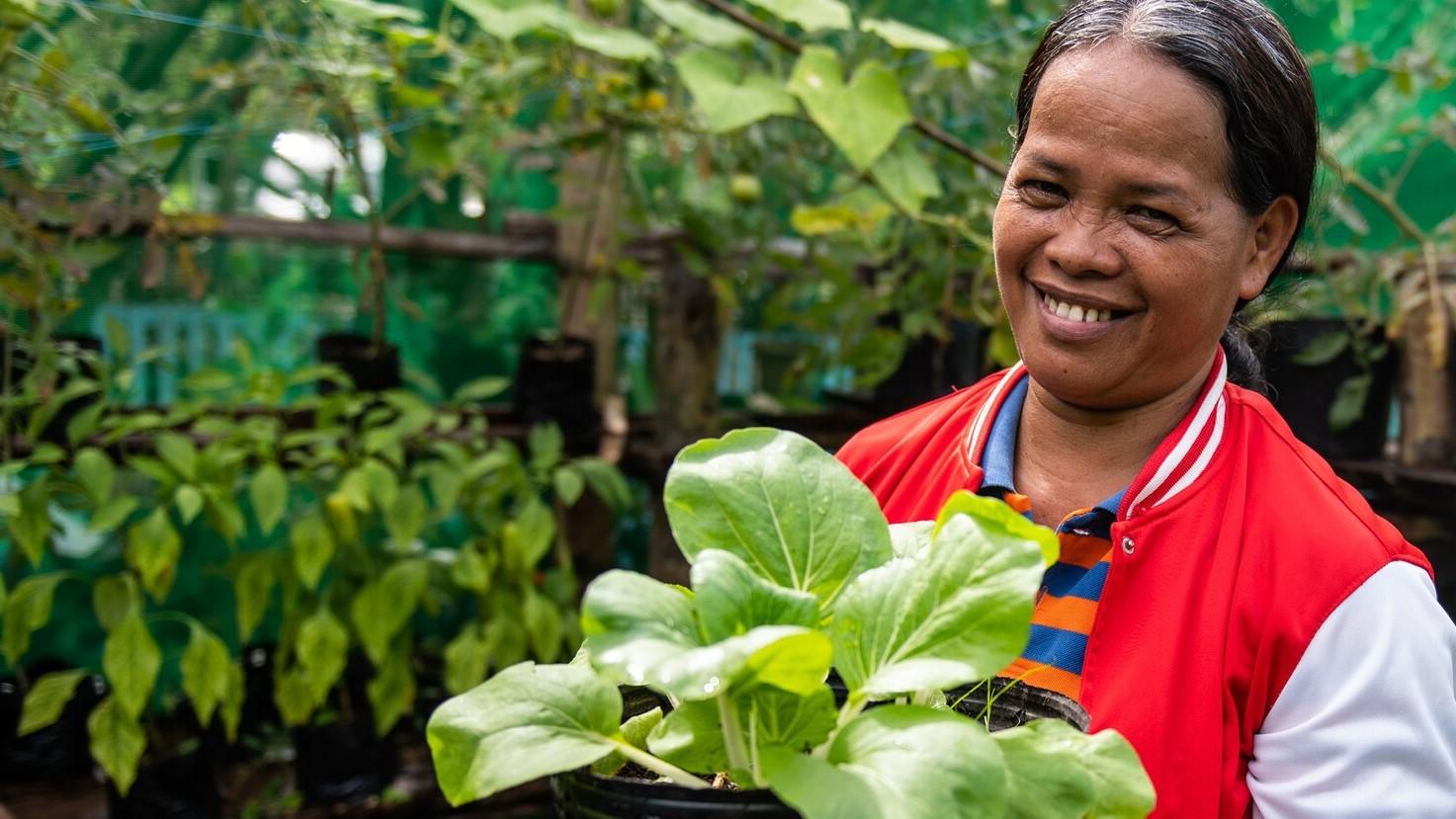
Support us with a donation
Read more

A ripple of change: how VSO volunteers are transforming communities
Every act of volunteering begins with a choice — a decision to act out of a desire to make a difference. Across the world, VSO volunteers are proving that one spark of action can ignite something much bigger.

The two volunteers empowering girls and young women in Mozambique
Nelma and Carmirene and are two volunteers working on VSO's EAGLE project in Mozambique. For Nelma and Carmirene, education is not just about school, it is about meeting people where they are and using the right tools to challenging harmful norms. Here are their stories.
Opening doors to safety, education, and a brighter future
For girls in Karamoja, the poorest region in Uganda, being forced into early motherhood is all too common. This Christmas, you can open the doors to Safety, Education, and a Brighter Future.
